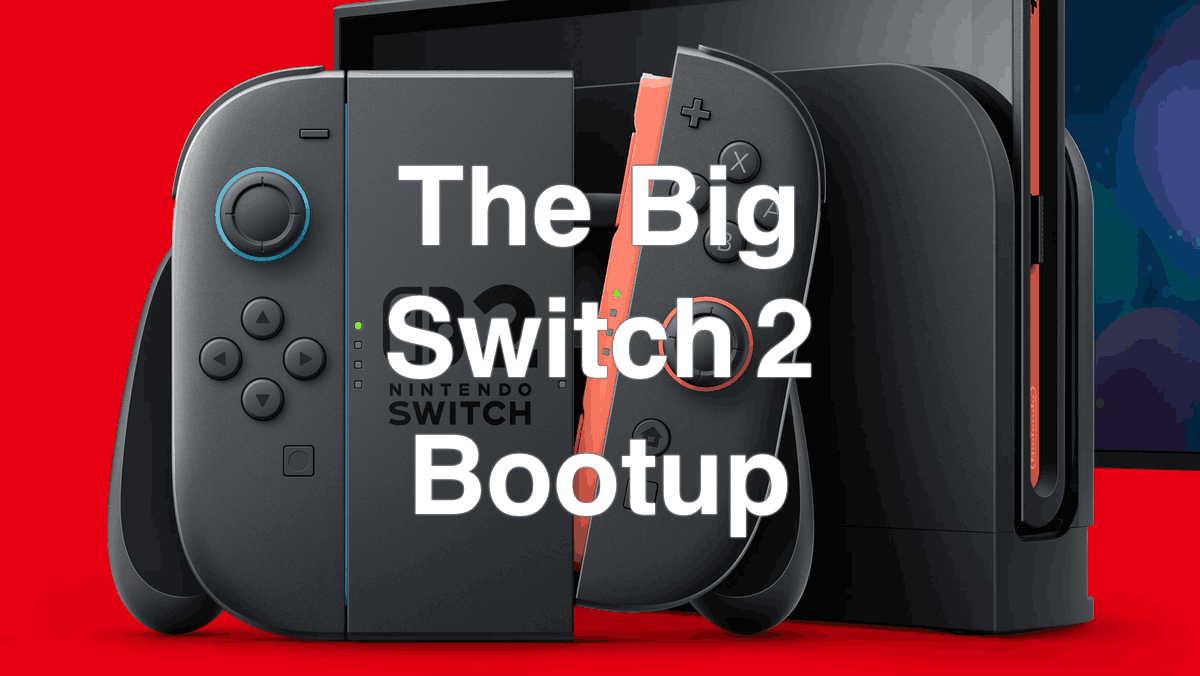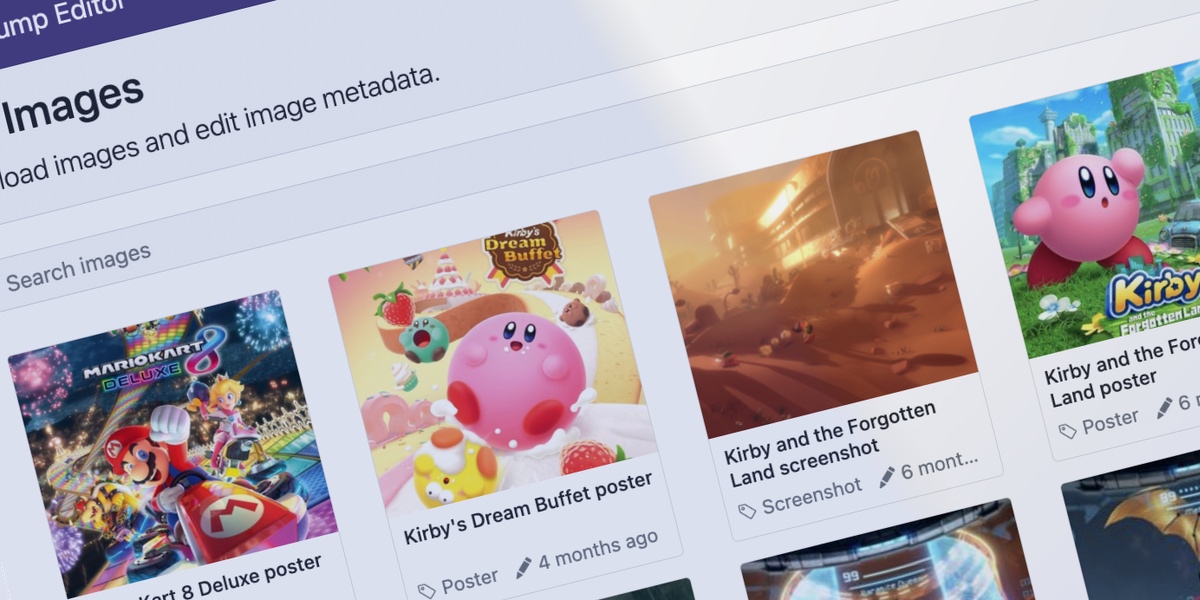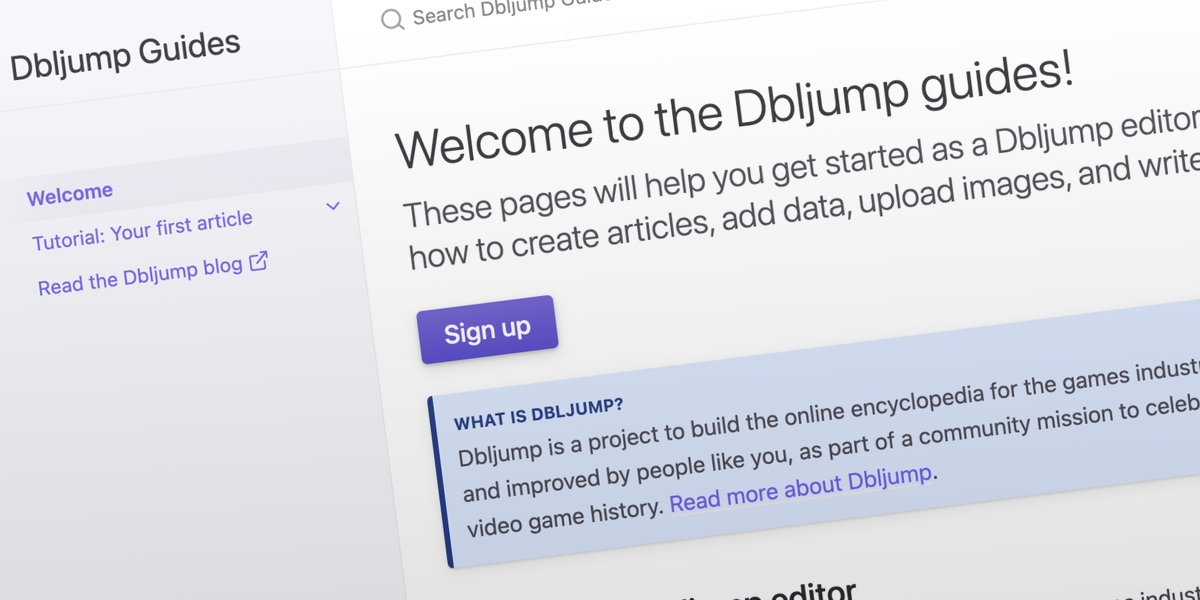Now it’s a game database! A new way to compare game versions with Dbljump
Summary: The Dbljump database has new game-version attributes for play styles, graphics, and sound. The new features power an improved version comparison table today, and will improve game search features in the future. Watch the 2-minute video demo.
Do you ever have trouble choosing between the Xbox, PlayStation, Nintendo, PC, or any other version of a game you want?
Do you wish there was an easy way to compare things like video resolution, frame rate, sound, play styles, and controls on each platform?
Dbljump has a new feature just for you, and it’s powered by a big upgrade to our database’s game versions table.
For every platform version of every game, we can now add information about:
- The number of players and play styles (versus, co-op, team-based) supported locally, online, and over LAN/system link
- Control types supported, such as VR, motion controller, infra-red and much more
- Video output including the max resolution, aspect ratio, whether the resolution is dynamically scaled, and whether features like HDR and stereoscopic 3D are supported
- Sound output e.g. stereo, surround, or spatial
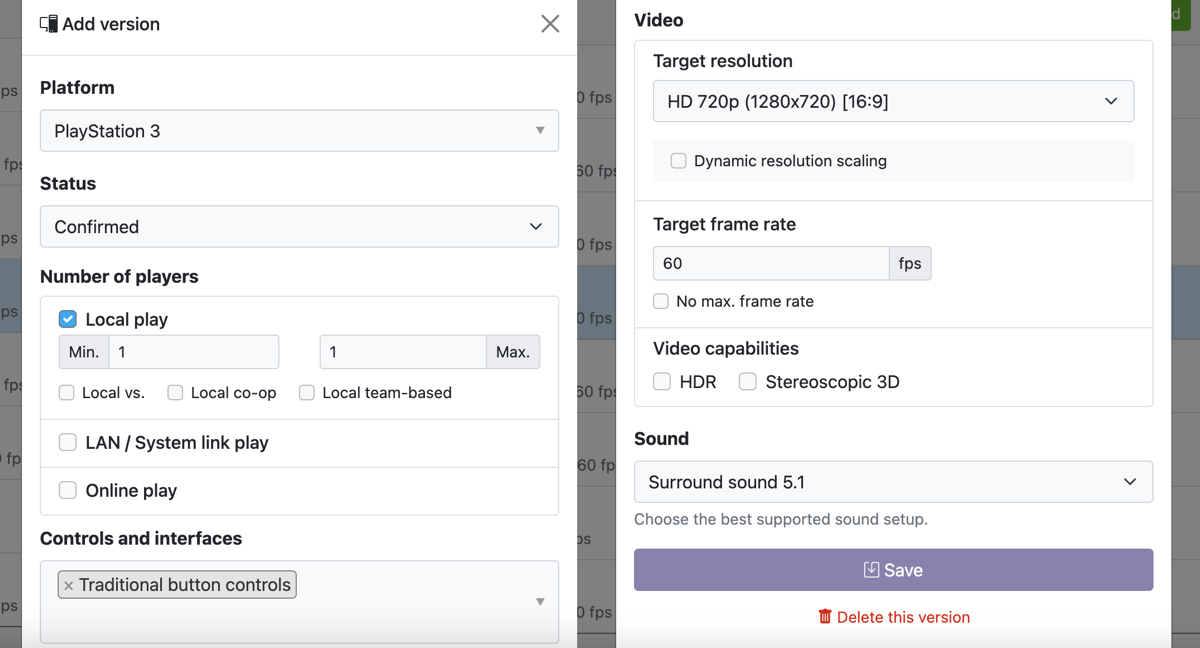
Our new game-version form makes it easy to specify all this with handy options, and we’ll continue to improve it over time.
Sounds complicated? Our comparison table isn’t.
The new information gives us a handy table like this:
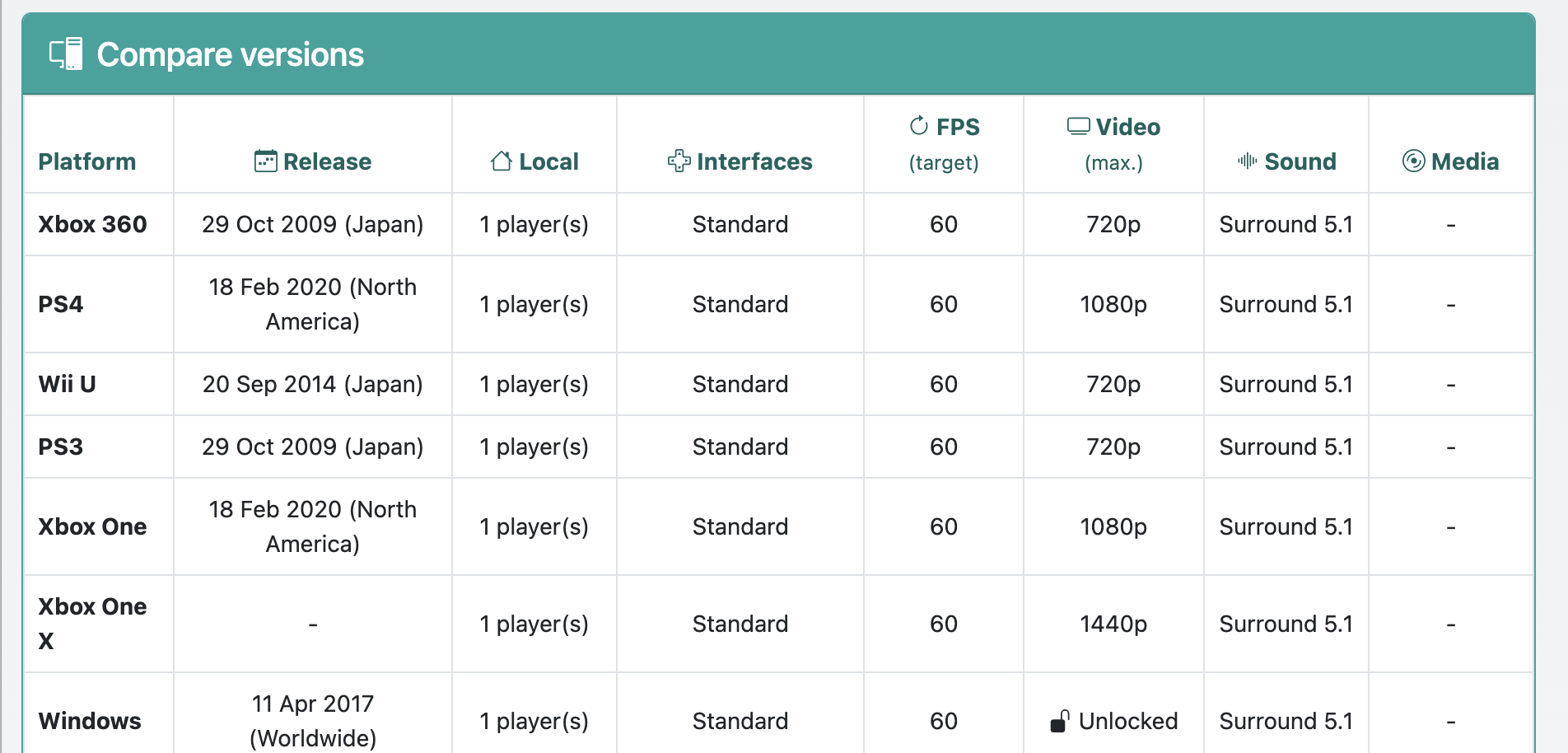
As you can see, it’s easy to see which platform has features you value, whether that’s high-resolution graphics, gyro aiming, LAN play, or something else.
(Can you guess which game the above table describes?)
Article text adds more detail and references
At Dbljump, we believe data should be verifiable via reputable sources. That’s why we have article text – so we can cite sources and provide more detail than a data table can communicate.
If you become a Dbljump editor and create an article about your favourite game, we ask that you do a bit of research – maybe looking at an analysis by Digital Foundry, or a gaming history project like Sega Retro. Sites like these are ideal sources for Dbljump articles.
In your article text, you can add more detail about each version’s attributes. For example, the Nintendo Wii U version of Bayonetta might target 60 frames per second but with frequent slowdown. A comparison table can’t capture this, but a short written summary can.
Uh, where’s all the data?
If you’re more of a reader than an editor, and you visited Dbljump.com looking for the lowdown on which version of the new Call of Duty to buy, you may be asking – where’s the article I searched for?
Well, the fact is we’re still building our platform. And there just isn’t a ton of data to look at yet.
So, we ask you to be patient and maybe…
- Follow Dbljump on Cohost, Twitter, Facebook, or YouTube, where you can see how our mission to build the best gaming knowledge resource progresses.
- Become an editor and help us add more data. As a founding editor, you can also have your say on feature development and the direction of the project. Sign up here.
If you sign up, please reach out to me directly with any questions you have. I’m easy to reach by replying to any Dbljump email you receive, or via the social sites linked above.
Thanks for reading. I’ll be back very soon with posts about our new Guides site and plans for the first Dbljump community project.

